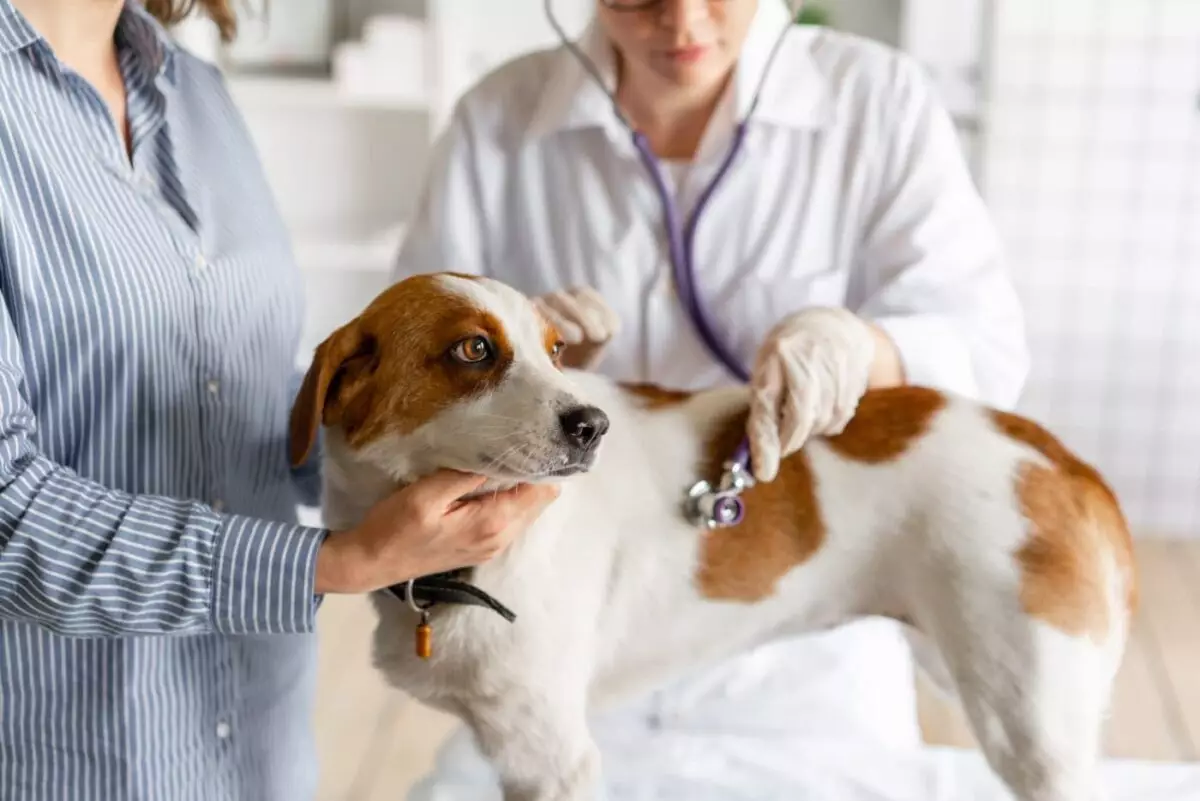Taking responsibility for a dog’s health is not only a privilege but a vital obligation for pet owners. Cultivating a proactive attitude towards veterinary care empowers pet owners to make informed decisions that significantly enhance the quality of life for their furry companions. While veterinarians provide expert medical treatment and advice, asking the right questions during appointments can lead to deeper insights into your dog’s health, thus optimizing their well-being throughout various life stages.
Canine vaccinations are pivotal in safeguarding against numerous diseases that could jeopardize a dog’s health. The specific vaccines required can vastly differ depending on factors such as a dog’s age, breed, daily activities, and even geographical location. For example, dogs that regularly roam through wooded environments might necessitate vaccines for conditions like Lyme disease. Inquiring with your vet about the appropriate vaccination schedule not only protects your pet but also helps in preventing the transmission of infectious diseases to other animals and humans. Discussing vaccination needs, booster shots, and potential side effects with your vet will bolster your confidence in your dog’s preventative healthcare strategy.
Maintaining a healthy weight is integral for your dog’s overall health, affecting everything from lifespan to day-to-day energy levels. Obesity, in particular, poses serious risks such as diabetes and joint pain, while being too thin can signify malnutrition or underlying health issues. Engaging with your veterinarian about your pet’s weight—examining their current status and discussing gradual adjustments to diet and exercise—can have a transformative impact on their health. Additionally, the plethora of dog food options available can be bewildering. Work with your vet to determine the most suitable nutritional plan tailored to your dog’s individual needs, whether that requires a high-protein diet or supplementation with appropriate nutrients to facilitate optimal health.
Routine veterinary visits play a crucial role in preemptively identifying potential health issues before they escalate. While puppies and senior dogs typically need more frequent veterinary assessments, junior adults might only need annual check-ups. Engaging your veterinarian in conversation regarding a personalized schedule of check-ups ensures your dog receives attention tailored to their unique health profile. Such proactive monitoring increases the likelihood of catching problems early and effectively managing any arising health concerns.
Dental health is a critical yet frequently overlooked component of canine care. Dogs can suffer from various dental diseases that can lead to excruciating pain or serious systemic health issues, including heart disease. Therefore, talking to your vet about the warning signs of dental issues—like persistent bad breath or difficulty eating—is essential. Your vet can provide tailored advice on maintaining your dog’s oral hygiene through regular brushing, dental chews, or professional cleaning schedules. Establishing a consistent dental care routine can notably enhance your dog’s quality of life, reducing the likelihood of severe health complications later on.
Fleas, ticks, and worms can pose significant threats to your dog’s health if left unchecked. Given that different regions harbor different parasites, proactive measures tailored to your dog’s lifestyle and environment are paramount. Consult with your veterinarian about the most effective prevention strategies—ranging from oral medications to topical treatments—to ensure that your beloved pet remains protected throughout the year. Understanding the risks in your specific environment ensures you can take action before problems arise.
Understanding that each dog breed carries unique genetic predispositions can significantly influence your dog’s healthcare plan. For instance, larger breeds may face specific issues like hip dysplasia, while smaller breeds often have their own vulnerabilities. Bringing breed-specific questions to your veterinarian can foster discussions that empower you to manage risks effectively. Your vet will be able to offer advice on recognizing symptoms and implementing preventative measures, turning you into a more informed advocate for your dog’s health.
Many dog owners may not realize that their pets can cleverly disguise pain. Observing changes in habit—such as decreased activity levels or alterations in mood—can be indicative of underlying health conditions. Engage your veterinarian in dialogue regarding any new behavioral observations, enabling a more thorough investigation into potential causes. Early detection of pain and implementing prompt care can lead to better management of health issues and greatly improve your dog’s quality of life.
Canine allergies can be tricky to diagnose, manifesting through various symptoms such as itching, gastrointestinal discomfort, or recurrent ear infections. Engaging your veterinarian in discussions regarding any persistent symptoms allows for tailored diagnostic testing and treatment plans, potentially identifying environmental triggers or food-related allergens. Establishing a clear understanding of your dog’s allergies not only elevates their quality of life but can also prevent more severe health issues in the future.
As dogs transition into their senior years, their health requirements inevitably evolve. From joint supplements to specialized diets, senior dogs may require a tailored approach to care. By proactively discussing signs of aging with your veterinarian, you can provide the necessary support as your dog matures. Understanding how to best facilitate comfort and health for aging pets can help prolong their quality of life and ensure they remain cherished companions for years to come.
Asking questions during veterinary visits is vital for safeguarding your dog’s health. From vaccinations and nutrition to dental hygiene and exercise, fostering open communication with your vet equips you to make informed decisions, ensuring your dog thrives at every stage of their life.

